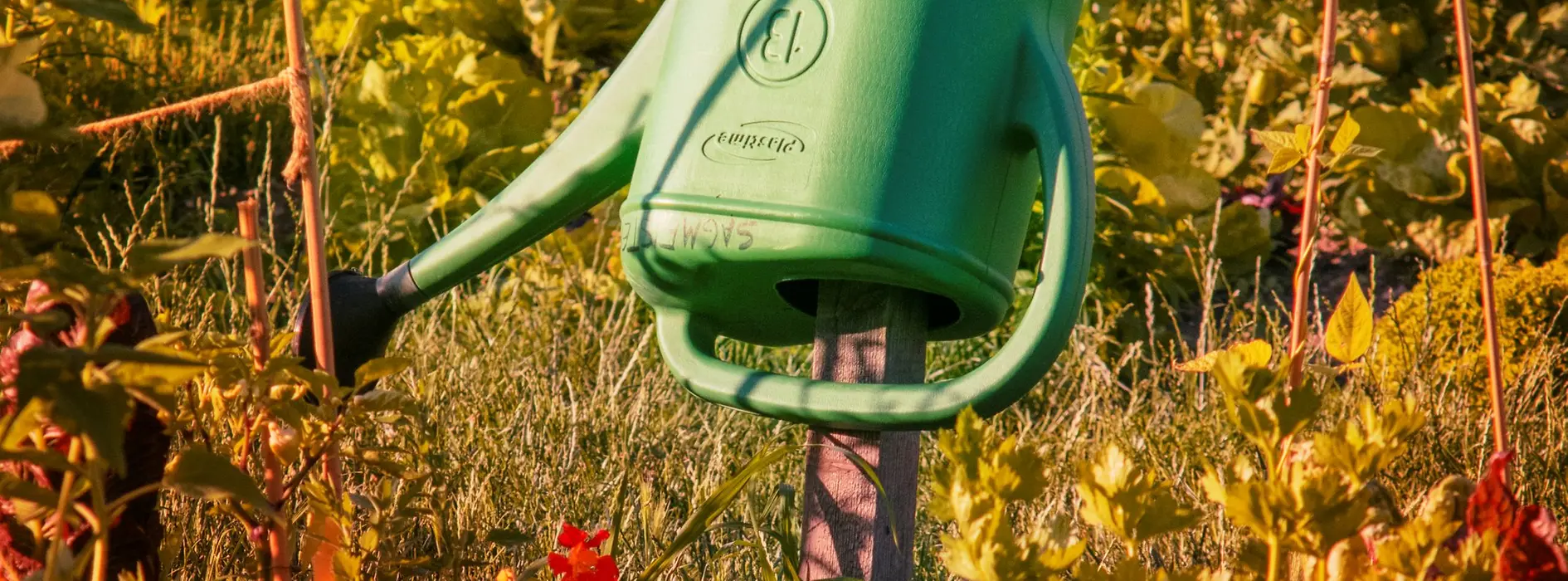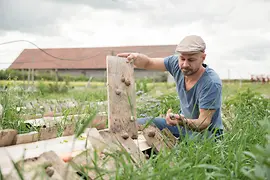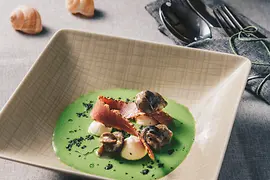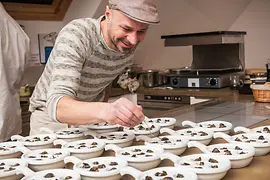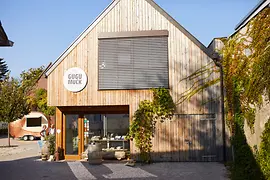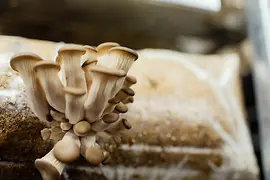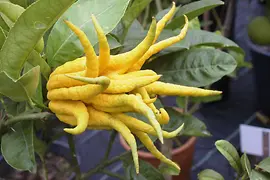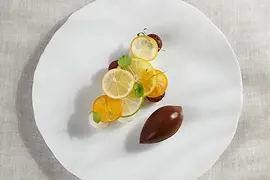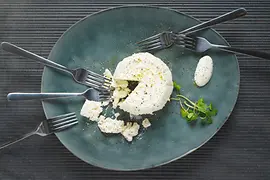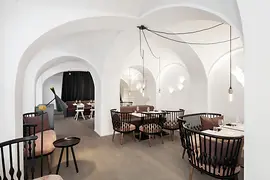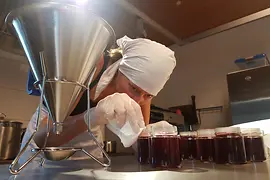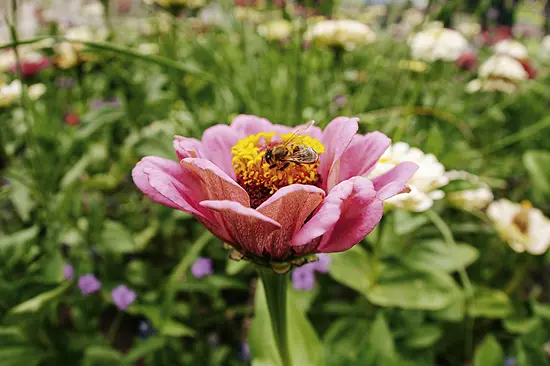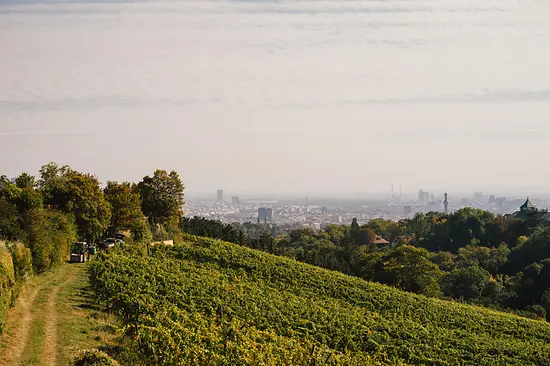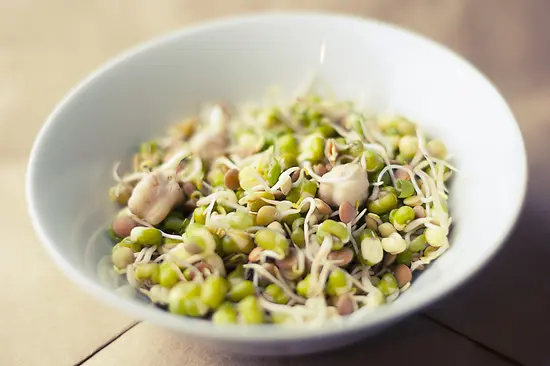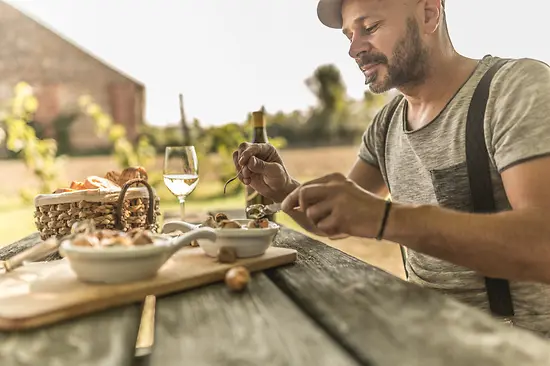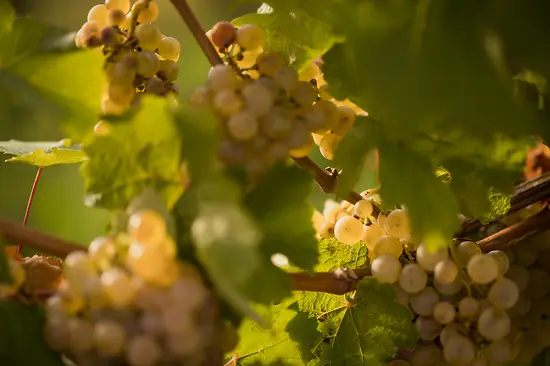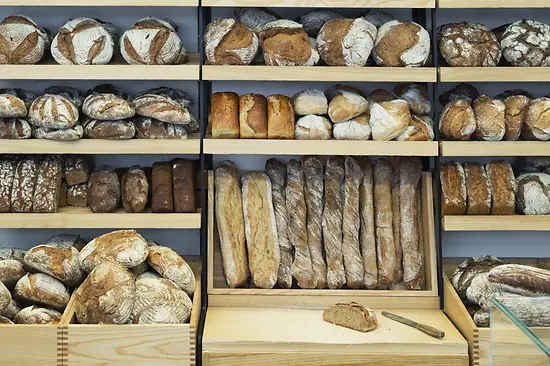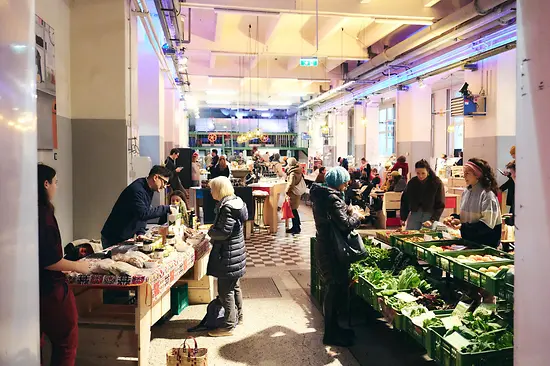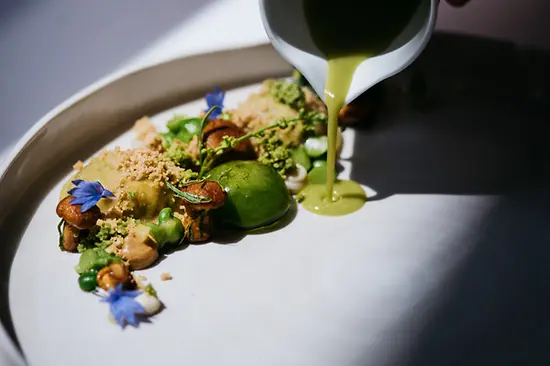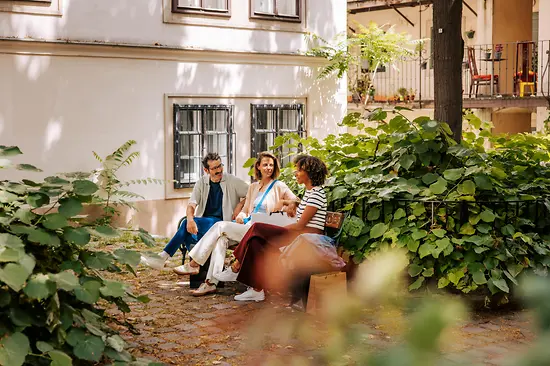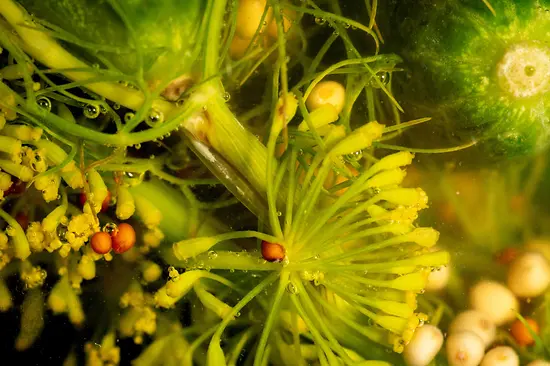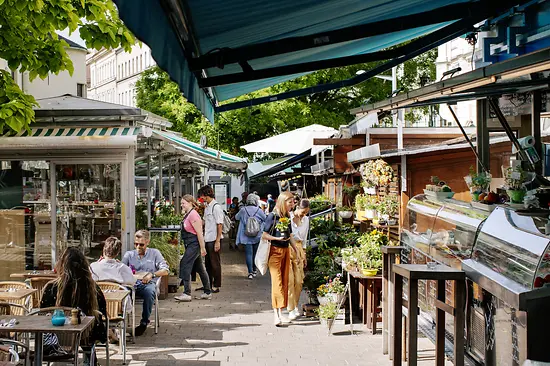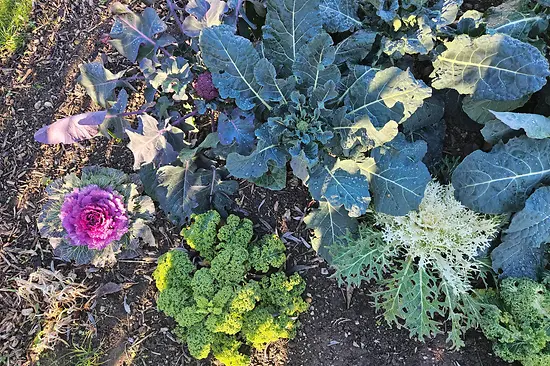Harvest Fresh from the City
Vienna’s agriculture sector is as varied as its museum scene. Who would have thought that there are around 450 agricultural businesses in the capital? The majority of the city’s farmers produce vegetables. In fact, Vienna is the nation’s cucumber capital. Two out of every three cucumbers grown in Austria come from the federal capital. And then there is the winegrowing industry, which is another major player in Vienna. In total, 15 percent of the land in the capital is given over to agriculture. Pretty impressive for a major international city. These days, locally sourced produce and short transport chains are the be all and end all in agriculture – and Vienna is no different.
Farm to Table
The producers include a number of creative spirits who have spotted and successfully established themselves in various niches. One of them is snail breeder Andreas Gugumuck. He transformed his family’s 400-year-old smallholding in Vienna’s southern outskirts into a snail farm. Initially, his idea of setting up his own farm to breathe new life into traditional Viennese escargot breeding raised a few eyebrows. But thanks to a lot of grit and determination, he was able to talk numerous restaurants in the city into putting dishes featuring Viennese escargots back on their menus. Gugumuck is more than happy to give visitors an entertaining tour of his farm punctuated with numerous snail-based anecdotes. His free-range mollusks get all the nutrition they need from organic plants and herbs.
For years, there has been a bistro on site where top chefs cook up multi-course, snail-inspired menus on selected dates. And it’s not just the snails that come from the farm, but the fruits and vegetables too. Here, farm to table is more than just an empty promise. Sustainability runs through every aspect of Andreas Gugumuck’s work.
Snails as a Future Food
“Vienna has a long history of snail breeding dating back to the Middle Ages. There was even a dedicated escargot market behind the Peterskirche church,” Gugumuck tells us. Rumored to have aphrodisiac properties, escargots farmed in the capital were also dubbed “Viennese oysters.” Today, snails are increasingly prized as a meat alternative thanks to their high protein content. Gugumuck sees a vision of the farm of the future for his snail breeding enterprise. His farm is already one of the top 50 farmers in Europe.
Mushrooms in Coffee Grounds
Fully in line with the principles of sustainability, Hut & Stiel operates a highly unusual agricultural set-up in its cellar. It takes quite some imagination to come up with the idea of growing oyster mushrooms on discarded coffee grounds. But in Vienna, city of coffeehouses, it’s actually not that far-fetched. Grounds are in bountiful supply, with around 100 tons available each day.
Not all of it ends up with Hut & Stiel founders Florian Hofer and Manuel Bornbaum. But a good 800 kg does, and that would otherwise get thrown out. “We’ve been growing mushrooms on coffee grounds since 2014 – a resource which is in virtually endless supply in a big city like Vienna. But rather than allowing this precious resource to go to waste, the grounds get picked up from the capital’s coffeehouses, restaurants, industrial kitchens and offices,” we learn. Mushroom spores and a few other materials are added to the coffee grounds before the mix is transferred to perforated bags ready for the oyster mushrooms to grow.
A short time after they are harvested, the mushrooms are delivered to restaurants (such as Wrenkh or Sperling im Augarten), deli stores and markets. This ensures that the city always has ample supplies of fresh mushrooms – without the lengthy supply chains. And if the latest crop outstrips demand, the oyster mushrooms are used in longlife products such as pesto, spreads, pasta sauces and goulash. The company’s days as a student start-up are long gone!
City of Gardeners
Bitter oranges, kumquats, Buddha’s hand and Kaiserzitrone lemons are just part of the profusion of citrus fruits that make up the Schönbrunn Palace citrus collection. Hard to believe, but Schönbrunn is also used for food growing, too.
Lord and master of this bitter realm is gardener and specialist citrus breeder Heimo Karner. Around a hundred varieties – including 30 historic examples from the days of the empire – are grown at the Schönbrunn Orangery. In summer, some of the plants are moved out into the open in the Crown Prince Garden, where visitors can admire them. And anyone interested in tasting these rare fruits has the chance to do precisely that at one of the city’s top restaurants. Heinz Reitbauer from Michelin-starred restaurant Steirereck is among the lucky few to source ingredients from the Schönbrunn citrus collection, which he puts to fine use in particularly exclusive desserts. Candied or dried, pickled or simply used to provide a shot of flavor – the weird and wonderful citrus fruits inspire plenty of experimentation at Steirereck.
Cheesy Story
Why not just make my own cheese, thought Johannes Lingenhel when he created his citycenter epicurean oasis in a beautiful 200-yearold building complete with cheese dairy, delicatessen and restaurant. At his courses in the show cheese dairy featuring authentic old stone horse troughs, Lingenhel tells anecdotes with fellow cheesemaker Robert Paget. They are literally up to their arms in lukewarm cheese curd, the aroma of fresh whey in their noses. They continually knead the curd, which will later be served as Vienna’s freshest buffalo mozzarella, pulling the cheese to stretch it. Both men have a lot of fun doing their work. Depending on the variety, the delicacies from the cheese dairy are served either direct from the dairy or after being left to mature: favorites include homemade goat milk brie, ricotta, and buffalo mozzarella and camembert. All of which comes from the cheese dairy next door.
In a Pickle!
Fruits and vegetables are often too small, too big or simply in too great supply for supermarkets to sell. And end up getting thrown away as a result. But now siblings Cornelia and Andreas Diesenreiter have made it their mission to save this unwanted produce.
After all, letting it go to waste would be, well, a waste. They founded their company Unverschwendet and got to work transforming surplus fruits and vegetables into jams, syrups, chutneys, pickles, sauces and much more besides. All by hand in the same small unit where they are sold on Schwendermarkt in the 15th district. The products are also available online and from selected delis. A great little sustainability project.
Text: Susanne Kapeller
- Rosiwalgasse 44, 1100 Wien
- gugumuck.com
Opening times
- Mo - Fr, 08:00 - 16:00
- Naufahrtweg 14a, 1220 Wien
- office@hutundstiel.at
- www.hutundstiel.at
Opening times
- We - Sa, 10:00 - 16:00
- Schönbrunner Schloßstraße 47, 1130 Wien
- www.schoenbrunn.at
- Landstraßer Hauptstraße 74, 1030 Wien
- reservierung@lingenhel.com
- www.lingenhel.com
Opening times
- Mo - We, 09:00 - 19:00
- Th - Fr, 09:00 - 22:00
- Sa, 08:00 - 16:00
- Schwendermarkt Stand 18, 1150 Wien
- www.unverschwendet.at
Opening times
- Tu, 15:00 - 18:00
- We, 15:00 - 18:00
- Th, 15:00 - 18:00
- Fr, 15:00 - 18:00
